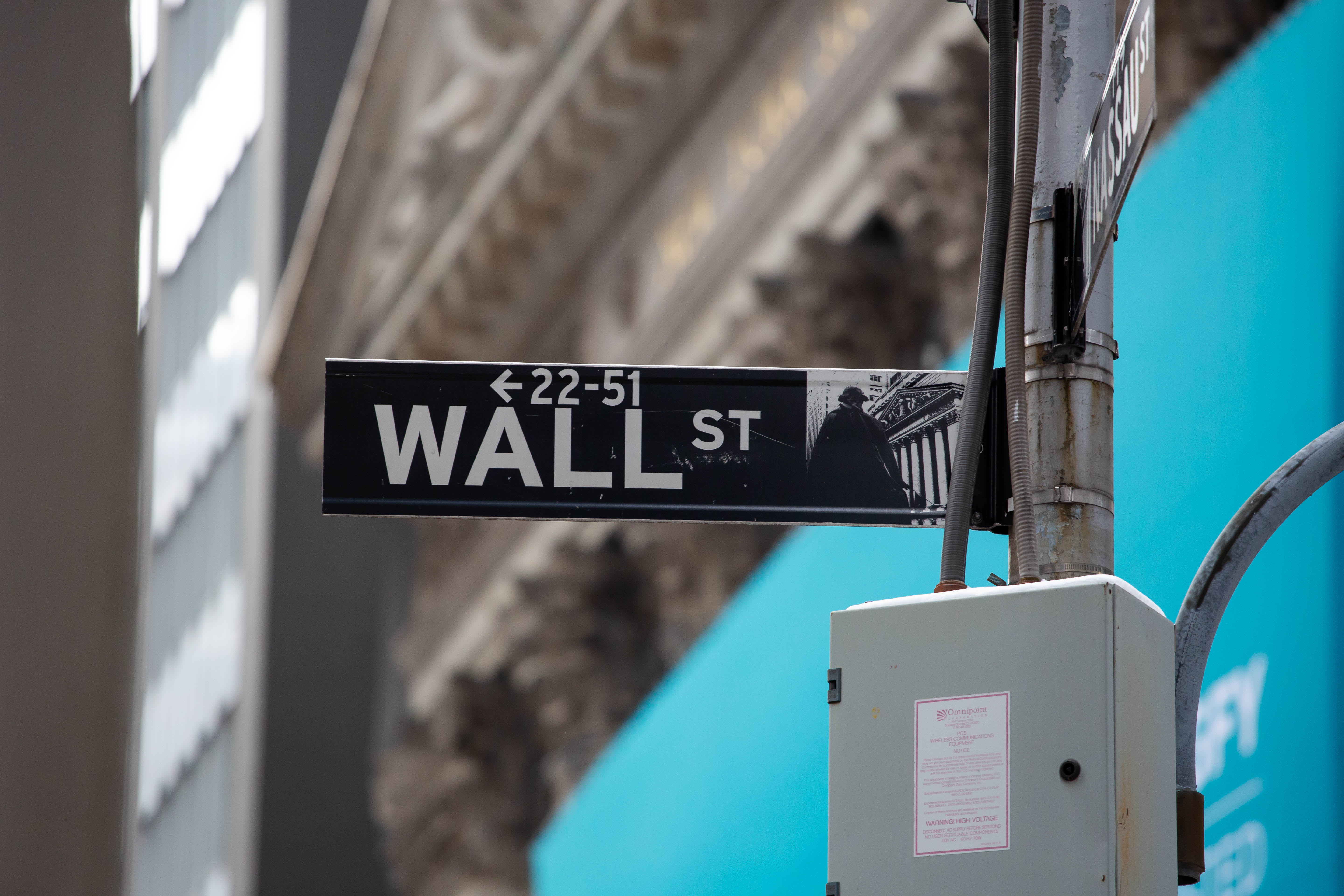Stock futures slip after Dow, S&P 500 hit fresh records

A Wall Street street sign is displayed in front of the New York Stock Exchange (NYSE) in New York, U.S., on Thursday, Feb. 11, 2021.
Bloomberg | Getty Images
Futures contracts tied to the major U.S. stock indexes held steady during the overnight session Sunday evening, suggesting Wall Street could see muted trading on Monday after reaching fresh records last week.
Dow futures lost 20 points, while contracts tied to the S&P 500 and Nasdaq 100 were down about 0.15% each.
The tepid movement in the futures market on Sunday followed yet another record close for the Dow Jones Industrial Average on Friday, when it gained nearly 300 points to end at 33,800.6. The S&P 500 gained 0.8% and hit its third straight record close.
Stocks linked to the recovering economy led many of last week’s gains as vaccinations efforts throughout the U.S. accelerated. Both the Dow and the S&P 500 climbed at least 2% last week. The Nasdaq rallied 3.1% over the same period as some traders snapped up big tech names, with Apple up more than 8% and Amazon and Alphabet each gaining more than 6%.
The first-quarter earnings reporting season begins this week, with expectations set for broadly positive news and an uptrend for U.S. equities thanks to a recovering economy. Many of the nation’s largest banks, including Goldman Sachs and JPMorgan Chase will this week report results for the three months ended March 31.
The coming week is also packed with Federal Reserve speeches and key economic data including a hotly anticipated inflation reading Tuesday, when the consumer price index is released.
The central bank’s chairman, Jerome Powell, kicked off the week of multiple Fed appearances with an interview that aired Sunday evening on CBS News’ “60 Minutes.”
During the interview, Powell reiterated that the Fed wants to see inflation rise above its 2% for an extended period before officials move to raise interest rates.
“We want to see inflation move up to 2% — and we mean that on a sustainable basis, we don’t mean just tap the base once,” he said. “But then we’d also like to see it on track to move moderately above 2% for some time.”
He added that amid an accelerated Covid-19 vaccine rollout and strong fiscal support, the U.S. economy appears to be at a turning point. “What we’re seeing now is really an economy that seems to be at an inflection point,” he said.
Powell will also speak Wednesday at an Economic Club of Washington event.
Investors will also keep an eye on President Joe Biden’s effort to advance a major infrastructure proposal known as the American Jobs Plan. Biden, who with other Democrats promised significant an infrastructure overhaul in the 2020 elections, will meet with a bipartisan group of lawmakers on Monday to try to persuade Capitol Hill to back the $2 trillion package.
Congress will return to Washington this week and be in session for the first time since Biden debuted his proposal, which earmarks hundreds of billions of dollars for roads, bridges, airports, broadband, electric vehicles, housing and job training.
“A positive fiscal shock, strong housing tailwinds, a large stock of savings, and the Fed letting inflation run above 2% mark a fundamentally different economic backdrop,” Evercore ISI equity strategist Dennis DeBusschere wrote in an email. “US data is expected to be strong this week and US vaccinations are increasing. Real rates are still too negative and are headed higher, supporting risk-on factor outperformance.”
The president’s plan would also increase the corporate tax rate to 28% and crack down on other overseas tax avoidance strategies.
Enjoyed this article?
For exclusive stock picks, investment ideas and CNBC global livestream
Sign up for CNBC Pro
Start your free trial now




